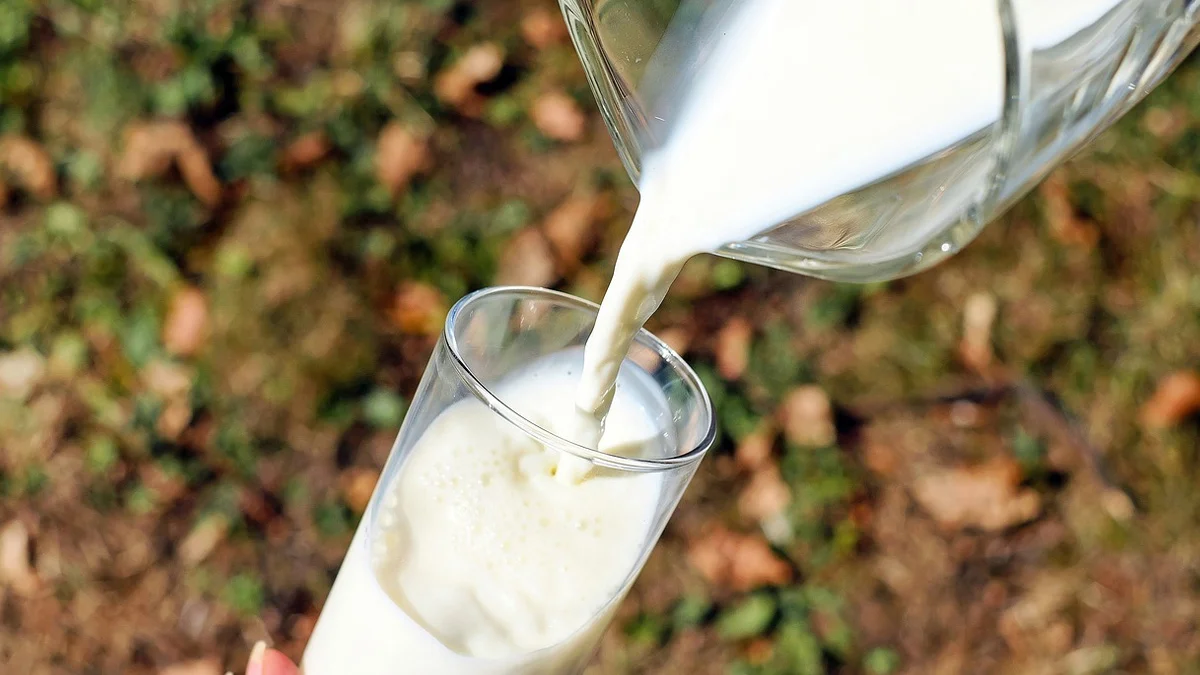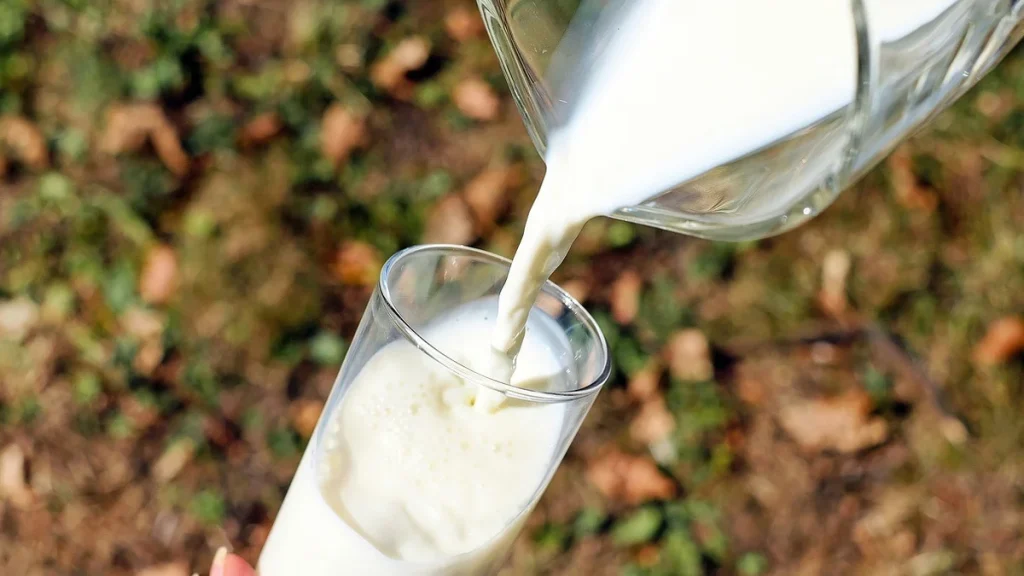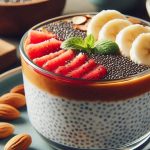Margot Robbie and the ‘Barbie’ Cast Swear by Milk Thistle Tea for Radiant Skin – Does It Deliver?
Milk thistle benefits for skin: Milk thistle, renowned for its therapeutic benefits, is gaining traction for its role in skincare. The cast of Barbie, including Margot Robbie, incorporated milk thistle tea into their regimen for a luminous complexion. Here’s what makes this plant a powerhouse for skin and overall health.
- The Skincare Benefits of Milk Thistle benefits for Skin
- Topical Application vs. Tea
- Beyond Skincare: Additional Health Perks
- Potential Risks and Precautions
- The Verdict
- 8 Best Vitamins and Supplements for Dry Skin
- 2. Collagen
- 3. Vitamin C
- 4. Fish Oil
- 5–8. Additional Supplements for Combatting Dry Skin
- Additional Considerations
- FAQs
The Skincare Benefits of Milk Thistle benefits for Skin
Originating from the Mediterranean, herbal medicine has used milk thistle for centuries. The plant is rich in silymarin, a potent antioxidant known to combat free radicals, reduce aging signs, and support skin repair. Silymarin also boasts anti-inflammatory properties, which help alleviate redness and acne. Additionally, it promotes healthy liver function, indirectly enhancing skin vitality by improving cell turnover.
Milk thistle contains essential fatty acids like linoleic acid to fortify the skin barrier, zinc to reduce inflammation and aid healing, and vitamin E to maintain elasticity and minimize wrinkles. These elements work harmoniously create plump, hydrated, and rejuvenated skin.

Is Chia Seed Pudding Good for Skin

Topical Application vs. Tea
Milk thistle can be consumed as tea or applied via skincare products. While tea provides comprehensive benefits, targeting the skin from within, topical products offer localized relief for specific concerns like rosacea or dermatitis. Studies have even shown that milk thistle can protect against UV damage and promote DNA repair, rivaling the efficacy of vitamin C.
Beyond Skincare: Additional Health Perks
Silymarin supports liver health, helping to detoxify and protect against damage caused by alcohol, medications, or diseases like non-alcoholic fatty liver disease. It may also aid in managing diabetes by improving insulin resistance and reducing LDL cholesterol. Some research suggests milk thistle can alleviate symptoms of Parkinson’s disease and enhance milk production in lactating mothers.
Potential Risks and Precautions
Milk thistle is generally safe, with mild side effects like nausea or digestive upset being rare. However, individuals on medications such as anticoagulants, nitroglycerin, or anti-hypertensives should consult a healthcare provider due to potential interactions. Pregnant or breastfeeding individuals and those with existing liver or skin conditions should also seek medical advice before use.
Allergic reactions, while uncommon, can occur, presenting as rashes, sneezing, or watery eyes. Those with conditions like eczema or psoriasis should be especially cautious to avoid exacerbating symptoms.
The Verdict
Whether sipped as tea or applied topically, milk thistle is a versatile addition to any skincare routine, offering a blend of aesthetic and health benefits. While its effectiveness can vary, this ancient plant continues to prove its modern-day value in wellness and beauty.
8 Best Vitamins and Supplements for Dry Skin
Your skin relies on essential nutrients like vitamin D and collagen to stay healthy, hydrated, and radiant.
Dry skin can result from various factors such as dehydration, aging, seasonal shifts, allergies, or even deficiencies in key micronutrients. Addressing these causes often involves a mix of approaches, from medicated ointments and moisturizers to lifestyle changes and dietary supplements.
If you’re looking to boost your skin’s hydration, here are eight vitamins and supplements that can help combat dryness.

Explore Avocado Toast Toppings: 6 Unique Variations
1. Vitamin D
Vitamin D is a fat-soluble powerhouse that’s vital for overall health, especially for your skin.
The outermost layer of your skin, called the epidermis, is primarily made up of keratinocytes. These unique skin cells are the only ones in your body capable of converting 7-Dehydrocholesterol (7-DHC) into a usable form of vitamin D.
This nutrient plays a pivotal role in maintaining the skin barrier, supporting skin cell growth, and bolstering the immune defenses of your skin against harmful pathogens.
Research links low vitamin D levels to conditions like eczema and psoriasis, which often cause dry, irritated skin. Studies also show that supplementing with vitamin D can significantly alleviate the symptoms of these conditions.
Additionally, vitamin D is connected to improved skin moisture. In a study of 83 women, those with lower vitamin D levels had drier skin compared to those with normal levels. Notably, as vitamin D levels increased, so did skin hydration.
Another 12-week study involving 50 women found that a daily supplement containing 600 IU of vitamin D resulted in notable improvements in skin hydration. However, this supplement also included other nutrients, making it unclear if vitamin D alone was the key contributor.
With a significant portion of the population deficient in vitamin D, this nutrient is a prime candidate for tackling dry skin. Before starting a supplement, consult your healthcare provider and choose third-party-tested products to ensure quality.
2. Collagen
Collagen, the body’s most abundant protein, forms the structural backbone of your skin and makes up an impressive 75% of its dry weight.
Emerging research highlights the skin-enhancing potential of collagen supplements. They’re linked to reducing wrinkle depth and boosting hydration levels, making your skin appear smoother and more supple.
In one study involving 69 women, participants who consumed 2.5–5 grams of collagen daily for eight weeks saw marked improvements in skin elasticity and hydration compared to those given a placebo.
Another 12-week study with 72 women revealed that supplements containing 2.5 grams of collagen peptides, combined with nutrients like vitamin C and zinc, led to significant enhancements in skin moisture and texture. However, since the supplement contained multiple ingredients, it’s unclear if collagen alone was solely responsible for the results.
Additionally, this study was funded by the supplement’s manufacturer, which could have influenced its findings.
A 2019 review of 11 studies offered further support, showing that taking 2.5–10 grams of oral collagen daily for 4–24 weeks improved skin hydration and alleviated xerosis—a condition characterized by excessively dry skin.
If you’re considering collagen supplements to address dryness, consult your healthcare provider first. Opt for a product that’s certified by a reputable third party to ensure safety and quality.
3. Vitamin C
Vitamin C is a potent antioxidant that shields your skin from damage while playing a pivotal role in collagen synthesis. It’s a cornerstone nutrient for maintaining healthy, vibrant skin.
Interestingly, the skin harbors exceptionally high levels of vitamin C. Research shows that the epidermis—your skin’s outermost layer—can contain up to 64 mg of vitamin C per 100 grams.
Boosting your intake of this nutrient through supplements has been shown to improve various aspects of skin health, including hydration.
Laboratory studies suggest that vitamin C strengthens the skin’s barrier function, minimizing water loss and potentially warding off dryness. When paired with other nutrients, its hydrating benefits may be even more pronounced.
One six-month study involving 47 men found that a supplement containing 54 mg of vitamin C, marine protein, and additional nutrients significantly improved skin hydration compared to a placebo.
Similar results were observed in studies involving women. For instance, research involving 152 participants noted that supplements combining 54 mg of vitamin C, zinc, and marine protein reduced skin roughness more effectively than a placebo.
However, much of the research includes vitamin C blended with other nutrients, making it unclear if the vitamin alone yields the same results. Additionally, many studies were funded by manufacturers of the evaluated products, which could influence findings.
Despite these limitations, current evidence indicates that supplementing with vitamin C may enhance skin health and alleviate dryness.
Before incorporating a vitamin C supplement into your routine, consult a healthcare provider to ensure it aligns with your overall wellness plan.

4. Fish Oil
Fish oil stands out as a powerhouse for skin health, celebrated for its remarkable anti-inflammatory and restorative properties.
Packed with docosahexaenoic acid (DHA) and eicosapentaenoic acid (EPA), these essential fatty acids offer a multitude of benefits for your skin. They support hydration, bolster the fatty acid barrier, and help your skin retain moisture effectively.
In one study involving rats with acetone-induced dry skin, high-dose fish oil supplements significantly improved skin hydration, reduced water loss, and alleviated itching associated with dryness. After just 60 days, skin hydration in the fish oil group surged by 30%.
Fish oil’s benefits extend beyond hydration. Research reveals that daily doses—ranging from 1–14 grams of EPA and 0–9 grams of DHA—administered over 6 weeks to 6 months can alleviate symptoms of psoriasis, including scaling and cracked, dry skin.
Beyond combating dryness, fish oil is a skin multitasker. It helps reduce inflammation, fortifies your skin against UV damage, and enhances its resilience, making it a comprehensive ally for skin wellness.
With numerous third-party-certified fish oil supplements on the market, it’s easy to find a quality option. However, it’s wise to consult your healthcare provider to identify the most suitable product and dosage for your individual needs.
5–8. Additional Supplements for Combatting Dry Skin
Alongside the well-known nutrients already mentioned, emerging research suggests that several other compounds could play a role in enhancing skin hydration and alleviating dryness.
Probiotics
Probiotics, specifically Lactobacillus plantarum, have shown promise in improving skin health. A study revealed that supplementing with this beneficial bacteria improved skin barrier function and hydration in both mice and humans after just 8 weeks. While the findings are encouraging, further studies are necessary to confirm these effects.
Hyaluronic Acid
Renowned for its topical benefits, hyaluronic acid has now stepped into the spotlight as an ingestible option for skin hydration. Recent research indicates that consuming hyaluronic acid in tandem with other nutrients may lead to significant improvements in skin moisture levels.
Aloe Vera
Aloe vera isn’t just for soothing sunburns. A study involving 64 women found that taking aloe-derived fatty acids for 12 weeks significantly boosted skin hydration and elasticity compared to a placebo. These findings hint at aloe vera’s potential as a skin-nourishing supplement.
Ceramides
Ceramides, essential fat molecules vital for maintaining healthy skin, have also been studied for their hydration benefits. Research suggests that supplementing with ceramides can increase skin moisture, offering a natural remedy for dry, parched skin.
While these supplements show potential for improving skin hydration, more extensive research is needed to validate their effectiveness as reliable solutions for treating dryness. Always consult a healthcare professional before incorporating new supplements into your routine.

Additional Considerations
While supplements can play a role in improving dry skin, it’s essential to recognize other underlying factors that might contribute to skin dryness.
Hydration Matters
Dehydration is a frequent culprit. Simply increasing your daily water intake can be a straightforward yet impactful way to enhance skin moisture and overall health.
Dietary Habits
An unbalanced diet or insufficient nutrient intake can exacerbate dry skin. Micronutrient deficiencies and inadequate caloric consumption are common contributors. Nourishing your body with a diverse and wholesome diet can help maintain skin elasticity and hydration.
Health Conditions
Chronic dryness might also signal deeper health issues. Conditions like kidney disease, anorexia, psoriasis, and hypothyroidism are known to cause or worsen dry skin. Environmental allergies can also be a significant factor.
Given the potential for these underlying causes, consulting with a healthcare provider is crucial if you experience persistent dryness or irritation. Ruling out serious medical concerns ensures that your skin gets the care it truly needs.
FAQs
Does Milk Thistle Make Your Skin Glow?
Yes, milk thistle may contribute to glowing skin. This herb is rich in silymarin, a powerful antioxidant that helps combat free radicals, reducing oxidative stress. By supporting liver health and detoxification, milk thistle indirectly promotes healthier, clearer skin, which can give it a radiant glow.
Is Milk Thistle Good for Anti-Aging?
Milk thistle is considered beneficial for anti-aging. Its antioxidants help fight the damage caused by free radicals, which are one of the leading causes of aging. The silymarin in milk thistle can reduce inflammation and enhance skin repair, potentially slowing the appearance of wrinkles and fine lines.
Is Milk Thistle Good for Hair and Skin?
Milk thistle can benefit both hair and skin. Its detoxifying properties support the liver, which plays a critical role in maintaining hormonal balance and overall skin health. For hair, its ability to improve blood circulation and deliver essential nutrients to the scalp may promote healthier, stronger hair growth.
Does Milk Thistle Reduce Melanin?
Milk thistle does not directly reduce melanin. However, its antioxidant properties may help improve skin clarity and even tone over time by reducing hyperpigmentation caused by oxidative stress. For significant melanin reduction, other treatments such as topical creams with ingredients like vitamin C, niacinamide, or licorice extract are more effective.
Which Supplements Are Best for Hair and Skin?
Here are some top supplements for hair and skin health:
- Collagen: Supports skin elasticity and strengthens hair.
- Biotin (Vitamin B7): Promotes healthy hair growth and improves skin texture.
- Vitamin C: Enhances collagen production and brightens skin tone.
- Zinc: Helps control acne and supports hair health.
- Omega-3 Fatty Acids: Keeps skin hydrated and prevents hair breakage.
- Hyaluronic Acid: Improves skin moisture and reduces fine lines.
- Vitamin E: Protects skin and hair from oxidative damage.
- Milk Thistle: Supports detoxification and healthy skin.
For best results, consult a dermatologist or nutritionist to determine which supplements suit your specific needs.








